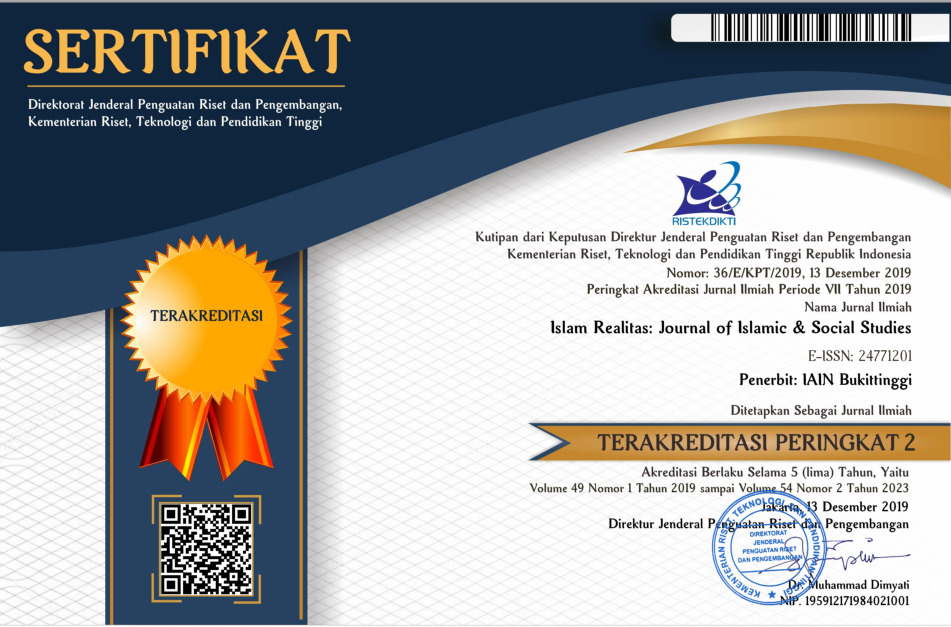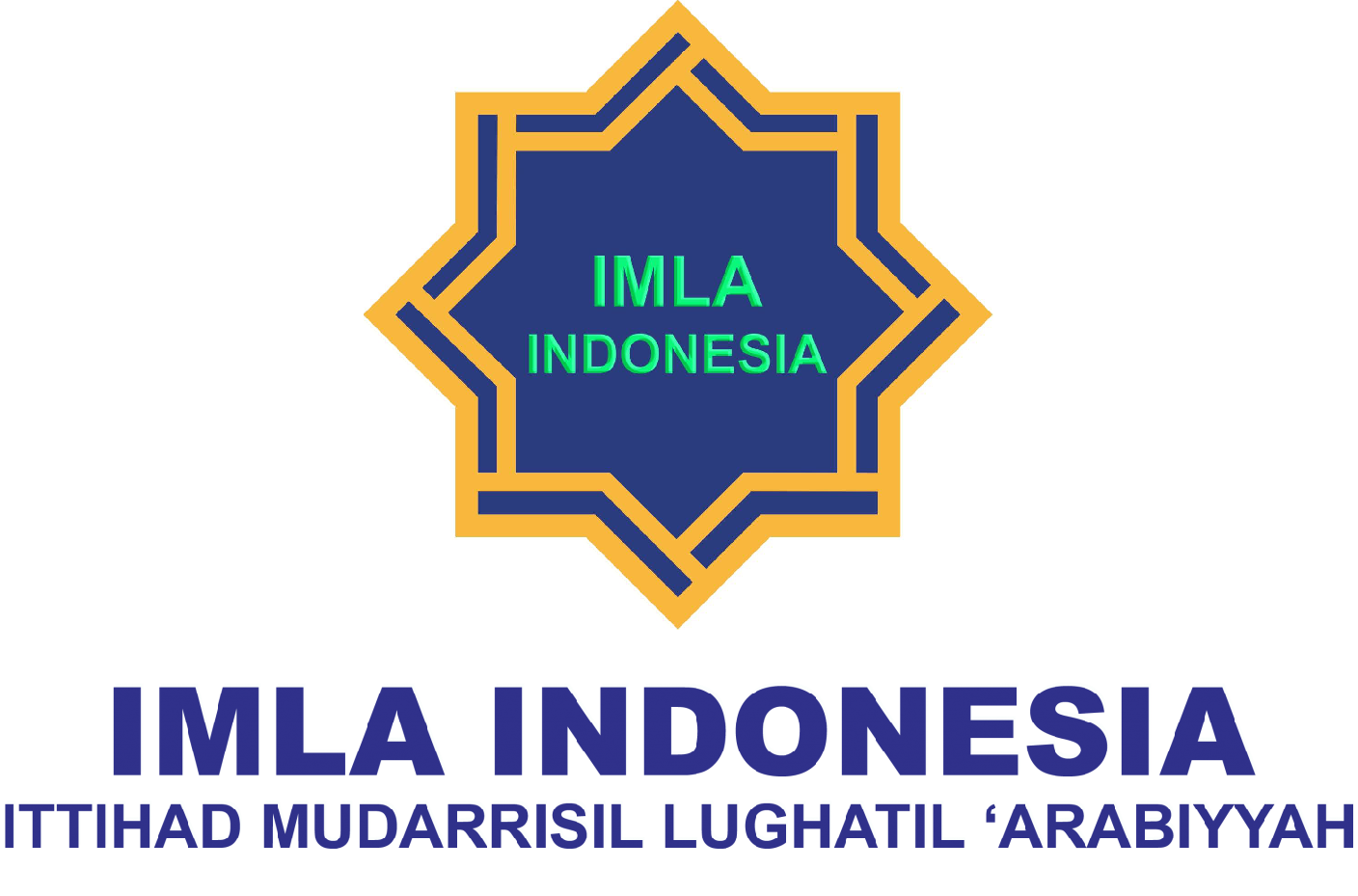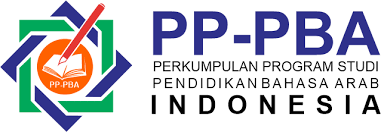The Origin of Arabic Lexicography: Its Emergence and Evolution
DOI:
https://doi.org/10.30983/huruf.v1i2.4932Keywords:
lexicography, lexicon, vocabularyAbstract
References
Abdullah, Ahmad ibn. al Ma’a>jim al Lughawiyyah wa Tathawwuruha>. 1st Edition. Riyadh: Da>r al Rayah, 1992.
Abdullah, Yasriy Abdul Ghaniy. Mu’jamu al Ma’a>jim al ‘Arabiyyah, 1st Edition. Beirut: Dar al Jail, 1991.
Abu Sikkin, Abdul Majid Muhammad. al Ma’a>jim al ‘Arabiyyah Mada>risuha> wa Mana>hijuha>, 2nd Edition. Kairo: Al Azhar University, 1981
Al Batuly, Ahmad ibn Abdullah. al Ma’a>jim al Lughawiyyah wa T{uruqu Tarti>biha>. 1st Edition. Riyadh: Dar al Rayah, 1992.
Al Farj, Muhammad Abu. al Ma’a>jim al Lughawiyyah fi> Dhau’I Dira>sa>t ‘Ilm al Lughah al Hadist. Kairo: Da>r an Nahdhoh al ‘Arabiyyah, 1966.
Al Hamzawiy, Muhammad Rasyad. Min Qadha>ya> al Mu’jam Qadi>man wa Hadi>tsan, 1st Edition. Tunisia: Dar Gharb al Islamiy, 1986.
Amin, Ahmad. Dhuha al Isla>m : Nasy’atu al ‘Ulu>m fi> al As}r al ‘Abbasy al Awwal. Kairo: Maktabatu al Usroh, 2003.
An Nuqrath, Abdullah Muhammad. al Sya>mil fi> al Lughah. Libya: Da>r al Kutub al Wathaniyyah, 2003.
Chaer, Abdul. Leksikologi dan Leksikografi Indonesia. Jakarta: Rineka Cipta, 2007.
Edrisi, Mohammad Hassan and Gholamhossein Sharifi. A Study of Arabic Lexicon their Compilation Methods and development. in Journal of Novel Applied Sciences. Vol. 04, No. 2, 2015.
Hayani, Fitra. Leksikografi Arab (Sebuah Kajian Lingustik Terapan). in Journal Shaut al ‘Arabiyyah. Vol. 7, No.1, 2019.
Kareem , Mahdi Inaayaah al Uthbi & Sundus Muhsin al Ubaidy. Approaches to Lexicography in English and Arabic. in LARQ Journal for Philosophy and Linguistic and Social Science. Vol. 7, 2012.
Khalil, Hilmy. al Dira>sa>t fi> al Lughah wa al Mu’jam. 1st Edition. Beirut: Da>r al Nahdhoh, 1998.
Murad, Ibrahim ibn. Masa>il fi> al Mu’jam. 1st Edition. Beirut: Da>r al Gharby al Islamiy, 1997.
Nashar, Husain. al Mu’jam al Arabiy Nasy’atuhu wa Tatawwuruhu. Kairo: Maktabah Misr, 1956.
Quthaib, Adnan. al Mu’jam al ‘Arabiy baina al Madhy wa al Ha>dir. 2nd Edition. Libanon: Maktabah Lubnan li al Nasyirin, 1994.
Saqal, Dizirah. Nasy’atu al Ma’a>jim al ‘Arabiyyah wa Tatawwuruha>. 1st Edition. Beirut: Dar al Shadaqoh al ‘Arabiyyah, 1995.
Setiadi, Alif Cahya. Tarikhu Nasy’ati al Ma’ajim al ‘Arabiyyah. in Journal Lisanu Dhad. Vol. 02, No. 2, 2015.
Umar, Ahmad Mukhtar. S{ina>’atu al Mu’jam al H{adi>ts. Kairo: ‘A>lamu al Kutub, 2009.
Ya’qub, Eimil. Al Ma’a>jim al Lughowiyyah al ‘Arabiyyah Bada>’atuha> wa Tatawwuruha>, 1st Edition. Beirut: Dar al ‘Ilm li Al Malayin, 1981.
Zaidan, George. Tari>kh Adab al Lughah al ‘Arabiyyah. Beirut: Da>r al Fikr.
Downloads
Additional Files
Published
How to Cite
Issue
Section
Citation Check
License
Authors who publish with this journal agree to the following terms:
- Authors retain copyright and grant the journal right of first publication with the work simultaneously licensed under a Creative Commons Attribution-ShareAlike 4.0 International Licensethat allows others to share the work with an acknowledgment of the work's authorship and initial publication in this journal.
- Authors are able to enter into separate, additional contractual arrangements for the non-exclusive distribution of the journal's published version of the work (e.g., post it to an institutional repository or publish it in a book), with an acknowledgment of its initial publication in this journal.
- Authors are permitted and encouraged to post their work online (e.g., in institutional repositories or on their website) prior to and during the submission process, as it can lead to productive exchanges, as well as earlier and greater citation of published work (See The Effect of Open Access).





